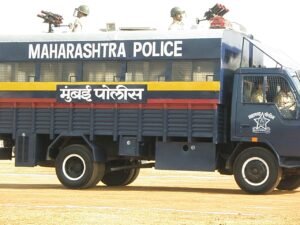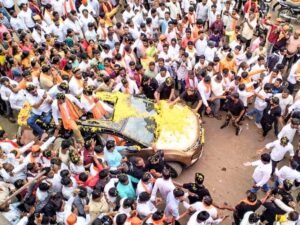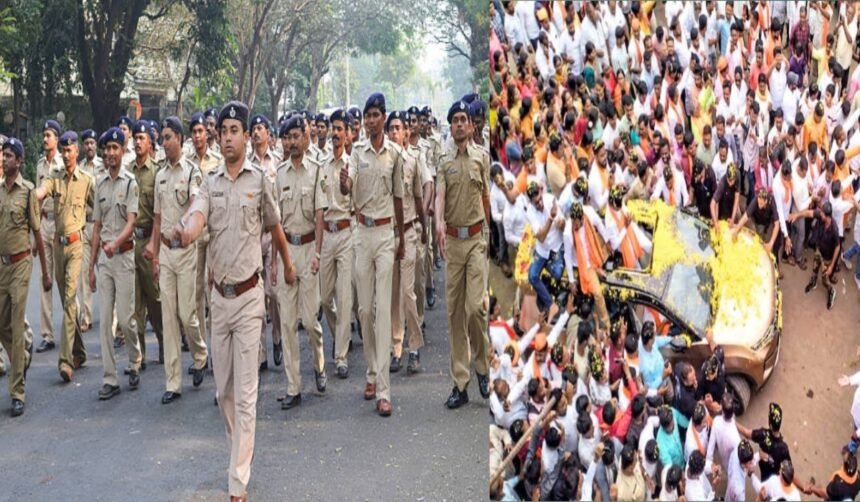By | Arvind Jadhav
Mumbai: Ahead of activist Manoj Jarange’s indefinite hunger strike at Azad Maidan, Mumbai has turned into a fortress with more than 1,500 police personnel and multiple central forces deployed to maintain law and order.
Manoj Jarange, who began his march from Antarwali Sarati village in Jalna on August 26, reached Mumbai after paying tribute at Shivneri Fort, the birthplace of Chhatrapati Shivaji Maharaj. His demand: all Marathas be recognized as Kunbis under the OBC category to secure reservation in education and government jobs.
Heavy Security Measures and Restrictions

Senior police officials, including Joint Commissioner Satya Narayan, reviewed the security arrangements on Thursday evening. Apart from the local police, companies from the CRPF, Rapid Action Force, CISF, and Maharashtra Security Force have been stationed across South Mumbai, especially around Azad Maidan and Chhatrapati Shivaji Maharaj Terminus (CSMT).
Authorities have imposed strict conditions on the protest. The permission allows a one-day agitation, from 9 am to 6 pm, with a cap of 5,000 participants at any given time. To prevent overcrowding, other groups seeking to protest at the same venue have been denied permission.
Traffic movement on the Mumbai-Pune Expressway and Sion-Panvel Highway has been restricted to avoid congestion due to the large convoys of protesters arriving from different parts of the state.
Political and Social Dimensions
Jarange has criticized the one-day permit as “an insult to the Maratha community,” warning that the agitation could intensify if the state government fails to respond positively. While the Maharashtra cabinet sub-committee has extended the tenure of the panel tasked with issuing Kunbi OBC certificates to Marathas, Jarange insists that “delays will no longer be tolerated.”
The government, on its part, has assured that Maratha reservation will be pursued without impacting existing OBC quotas. However, organizations like the National OBC Federation have announced their own protests beginning August 30 in Nagpur, demanding that OBC rights remain untouched.
Growing Public Response and Emotional Toll

Support for the protest has been pouring in from across Maharashtra. Sadly, the movement witnessed tragedy as Satish Deshmukh, a supporter traveling from Beed district to join the march, died of a heart attack en route near Junnar. Another protester also reportedly succumbed to cardiac arrest during the journey, triggering grief among fellow activists.
Despite these setbacks, thousands of supporters are expected to gather in Mumbai today, making this one of the most significant caste-based agitations in recent years.








